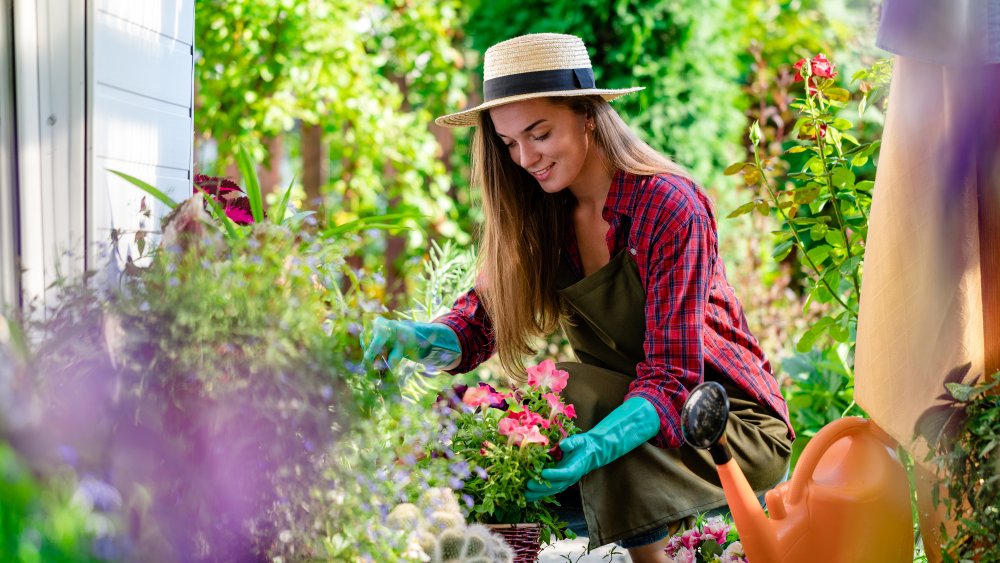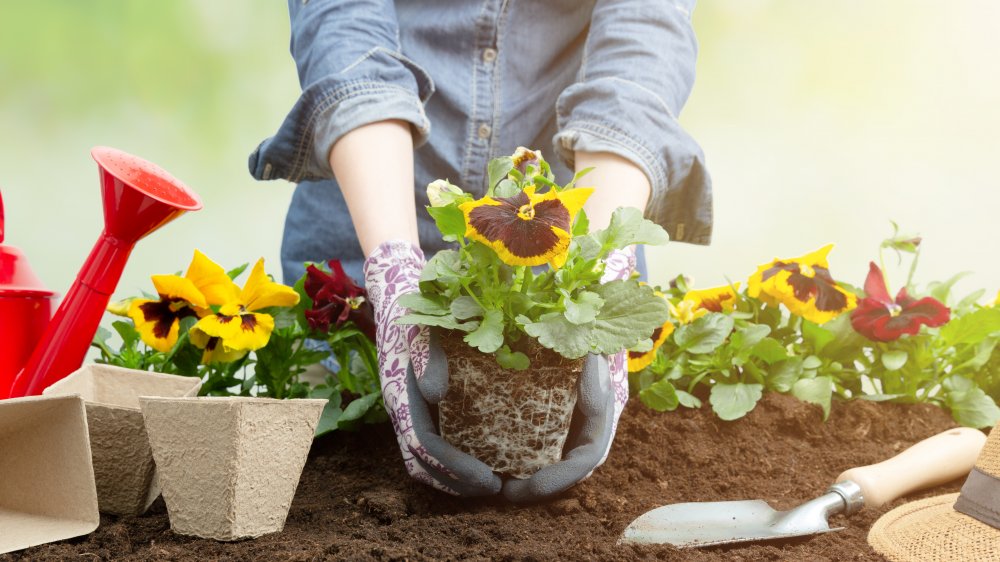Newbie Gardening Mistakes You're Probably Making
If the COVID-19 quarantine has inspired you to test your green thumb, you're not alone. Seed companies across the country are experiencing a boom in sales, according to Reuters, including a 270 percent increase in orders for Johnny's Selected Seeds in Maine. And Seth Reed, co-founder of the gardening app GrowIt, told NBC News, "We've seen a tenfold growth in daily active users over the past couple of months."
Why are so many of us heading outside to get our hands dirty? It's more than just the cute clogs. Gardening is a proven stressbuster, lowering your levels of the stress hormone cortisol, decreasing irritability, and boosting calm, per The American Institute of Stress. Who doesn't need these benefits during the pandemic?
But even though simply getting outdoors is amazing for your health, you may be making some common missteps that prevent your garden from flourishing. One of the biggest? It's overhead watering, according to Better Homes & Gardens. When you simply use your hose to spray water over the leaves, you risk it not reaching the plant's roots. Plus, overly damp leaves can become "a breeding ground for fungus and disease." Instead, try a soaker hose to ensure the water reaches where it's needed most and your leaves stay healthy.
More novice gardening pitfalls and how to avoid them
Another easy mistake is placing plants too close together, according to House Beautiful. Apparently, like many of us, plants don't like crowds. They "need air circulating around them and room to spread their branches and roots." And having your greenery too close together also increases the risk of disease. Most plants come with a tag that advises how far apart they need to be in the ground. If you've already planted, do an online search to find out the right distance. If need be, you can remove every other one and start a new row.
Of course, with gardening comes weeding, and it's no fun. But beware going overboard on the herbicide, advises Real Simple. "Chemical herbicides poison the soil and can remain in the dirt for years," Ivette Soler, a Los Angeles-based garden designer, told the magazine. Translation? Overuse of these chemicals means your soil won't grow weeds... or plants or flowers or vegetables. Instead, Soler suggests a homemade concoction to fight weeds: Pour a mix of equal parts hot water and vinegar over the problem area once a day for a few days. The vinegar kills the offending growths without the lasting effects on your soil.
Now that you've got the answers to these top gardening faux pas, why not shake off some quarantine stress, grab your trowel, and start digging?

